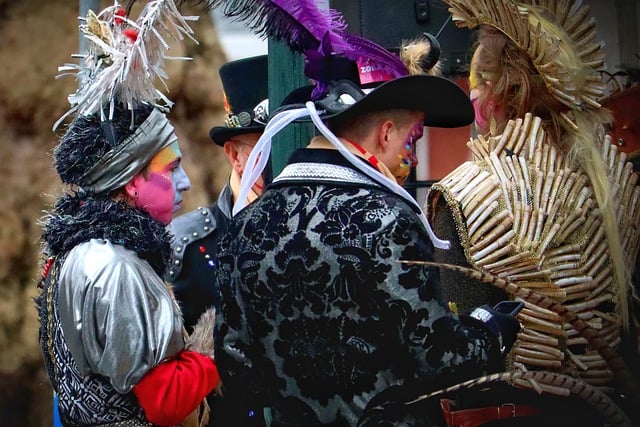Understanding Dutch Culture and Lifestyle

The Netherlands, often referred to as Holland, is a small yet culturally rich country in Western Europe. Known for its picturesque landscapes of windmills, tulips, and canals, the Netherlands also boasts a unique culture and lifestyle that reflect centuries of history, innovation, and social progress. Understanding Dutch culture and lifestyle goes beyond appreciating these iconic symbols; it involves delving into the values, traditions, and daily habits that shape the lives of its people. This article will explore various aspects of Dutch life, from their approach to work-life balance to their commitment to sustainability and equality.
Geography and History: A Foundation for Dutch Identity
To truly understand Dutch culture, one must first appreciate the country’s geography and history. The Netherlands is renowned for its low-lying terrain, with about 20% of the land reclaimed from water through an intricate system of dikes and pumps. This constant battle against nature has instilled in the Dutch a strong sense of pragmatism and resourcefulness. Historically, the Netherlands was a major maritime power during the 17th century, known as the “Golden Age,” when it dominated global trade, art, and science. Today, this legacy continues to influence the nation’s identity, fostering a spirit of exploration, openness, and innovation.
Core Values of Dutch Society
Dutch society is built on several core values that distinguish it from other cultures:
- Directness and Honesty : One of the most notable traits of the Dutch is their straightforwardness. They value honesty and clarity in communication, which can sometimes come across as blunt to outsiders. However, this directness stems from a desire for transparency and efficiency.
- Equality and Tolerance : The Netherlands is celebrated for its progressive stance on issues such as gender equality, LGBTQ+ rights, and religious freedom. Social inclusivity is deeply ingrained in Dutch society, making it one of the most accepting countries in the world.
- Pragmatism : Practicality plays a significant role in Dutch thinking. Whether it’s designing efficient public transportation systems or creating sustainable urban environments, the Dutch prioritize functionality over aesthetics.
- Individualism with Community Focus : While individual freedoms are highly valued, there is also a strong emphasis on community responsibility. This balance ensures that personal aspirations align with societal well-being.
Daily Life in the Netherlands
The everyday life of the Dutch reflects their cultural values in numerous ways:
Cycling Culture
One cannot discuss Dutch lifestyle without mentioning cycling. With over 22,000 kilometers of bike paths, the Netherlands is arguably the most bike-friendly country in the world. Cycling is not just a mode of transport but a way of life. It promotes health, reduces traffic congestion, and supports environmental sustainability—all priorities for the Dutch.
Work-Life Balance
The Dutch place great importance on maintaining a healthy work-life balance. Employees typically work fewer hours compared to many other European nations, allowing them more time to spend with family and pursue hobbies. Flexible working arrangements are common, reflecting the belief that productivity does not depend solely on long working hours.
Food and Drink
Traditional Dutch cuisine may not be as famous as French or Italian food, but it offers comforting dishes like stamppot (mashed potatoes with vegetables) and hutspot (a hearty stew). Coffee culture is also prominent, with cafes serving high-quality coffee alongside pastries. Additionally, the Dutch have a love affair with cheese, producing world-renowned varieties such as Gouda and Edam.
Education and Family Life
Education is highly regarded in the Netherlands, with a focus on holistic development rather than rote learning. Parents encourage children to develop independence early, teaching them skills like riding bikes and managing finances. Family life centers around quality time together, whether enjoying meals at home or taking weekend trips to nearby parks or beaches.
Sustainability and Innovation
Environmental consciousness is a defining feature of modern Dutch culture. From wind energy projects to zero-waste initiatives, the Netherlands leads by example in promoting green living. Cities like Amsterdam and Rotterdam are pioneers in smart city technologies, using data-driven solutions to enhance urban living while minimizing ecological footprints.
Water management remains a critical area of expertise, with the Dutch sharing their knowledge globally to help combat climate change. Their innovative approaches to flood prevention and water conservation serve as models for countries facing similar challenges.
Festivals and Traditions
While the Dutch are known for their modern outlook, they still cherish traditional festivals and customs. Some notable celebrations include:
- King’s Day (Koningsdag) : Held annually on April 27th, this national holiday sees cities transformed into vibrant markets and parties, with everyone dressed in orange—the color of the royal family.
- Sinterklaas : A festive season in November and December where Sinterklaas (the precursor to Santa Claus) arrives by steamboat to deliver gifts to children. This beloved tradition highlights the warmth and generosity of Dutch communities.
- Flower Parades : Events showcasing stunning displays of flowers, particularly tulips, celebrate the country’s agricultural heritage and artistic flair.



